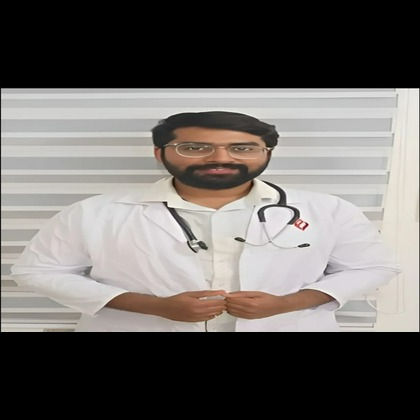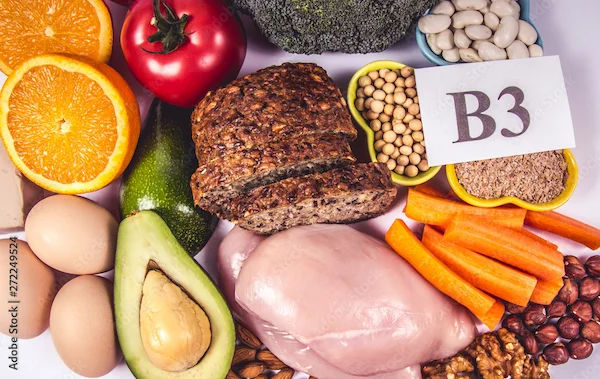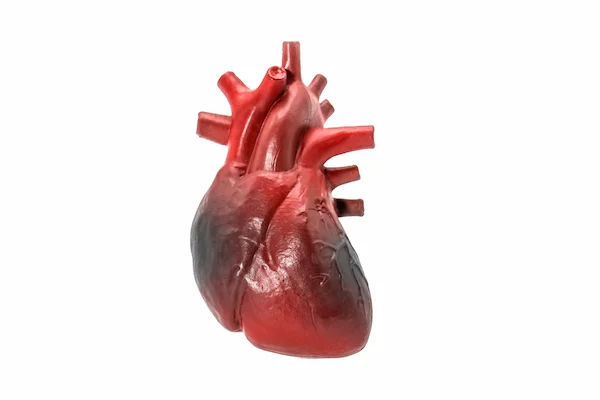Stomach Ulcer: Symptoms, Causes, and Treatment
Learn about stomach ulcers, including common symptoms, underlying causes such as H. pylori infection or NSAID use, and effective treatment options for relief and healing.

Written by Dr. Dhankecha Mayank Dineshbhai
Reviewed by Dr. Shaik Abdul Kalam MD (Physician)
Last updated on 26th Aug, 2025

Stomach ulcers, also known as peptic ulcers, are painful sores that develop in the lining of the stomach or the upper part of the small intestine (duodenum). These ulcers can cause discomfort, pain, and sometimes serious complications if left untreated. The good news is that with proper care and treatment, most ulcers heal completely.
In this article, we’ll discuss what stomach ulcers are, their symptoms, causes, and effective treatment options, along with simple lifestyle changes that can help manage and prevent them.
What Is a Stomach Ulcer?
A stomach ulcer is an open sore that forms when the protective lining of the stomach or duodenum gets damaged. Normally, a thick layer of mucus protects the stomach from digestive acids, but when this layer weakens, acid can erode the stomach lining, leading to an ulcer.
Consult a Top Gastroenterologist
Common Symptoms of Stomach Ulcers
Stomach ulcers can cause a variety of symptoms, including:
- Burning stomach pain (most common symptom, often felt between meals or at night)
- Bloating or feeling full quickly
- Heartburn or acid reflux
- Nausea or vomiting (sometimes with blood)
- Dark or black stools (a sign of bleeding)
- Unexplained weight loss
- Loss of appetite
If you experience severe symptoms like sharp, sudden stomach pain, vomiting blood, or black stools, seek medical help immediately, as these could indicate a serious complication.
What Causes Stomach Ulcers?
Stomach ulcers are primarily caused by two main factors:
1. Helicobacter Pylori (H. Pylori) Infection
This is a common bacterial infection that weakens the stomach’s protective lining, making it more prone to damage
from stomach acid. Many people have H. pylori without knowing it, but in some cases, it leads to ulcers.
2. Long-term Use of NSAIDs (Painkillers)
Frequent use of pain relievers like aspirin, ibuprofen, or naproxen can irritate the stomach lining and increase ulcer risk.
Other Contributing Factors:
- Smoking & Alcohol: Both can increase stomach acid production and weaken the protective lining.
- Stress & Spicy Foods: While they don’t directly cause ulcers, they can worsen symptoms.
- Excess Stomach Acid (Zollinger-Ellison Syndrome): A rare condition where the stomach produces too much acid.
How Are Stomach Ulcers Diagnosed?
If you suspect a stomach ulcer, a doctor may recommend:
- Endoscopy (a thin tube with a camera to examine the stomach)
- H. Pylori Test (blood, stool, or breath test)
- Barium Swallow X-ray (to detect ulcers)
Early diagnosis helps prevent complications like internal bleeding or perforation (a hole in the stomach wall).
Effective Treatment Options
Treatment depends on the cause but usually includes:
1. Medications
- Antibiotics (if H. pylori infection is present)
- Proton Pump Inhibitors (PPIs) (reduce stomach acid)
- H2 Blockers (decrease acid production)
- Antacids (provide quick relief from pain)
2. Lifestyle Changes
- Avoid NSAIDs: Use acetaminophen (paracetamol) instead if possible.
- Quit Smoking & Limit Alcohol: Both irritate the stomach lining.
- Eat Smaller, Frequent Meals: Helps reduce acid buildup.
- Manage Stress: Yoga, meditation, or deep breathing can help.
3. Dietary Adjustments
- Avoid Spicy, Acidic, or Fried Foods (if they worsen symptoms)
- Include Probiotics (yogurt, kefir) to support gut health
- Eat Fiber-Rich Foods (fruits, vegetables, whole grains)
When to See a Doctor?
If you have persistent stomach pain, vomiting blood, or black stools, consult a doctor immediately. Early treatment prevents complications.
Need Expert Advice?
If you suspect a stomach ulcer, you can book a consultation with a gastroenterologist or schedule an H. pylori test through Apollo 24|7 for quick and reliable diagnosis.
Final Thoughts
Stomach ulcers are common but manageable with the right treatment and lifestyle changes. If you experience symptoms, don’t ignore them—early care ensures faster recovery. A healthy diet, avoiding irritants, and following medical advice can help keep your stomach healthy and pain-free.
Consult a Top Gastroenterologist
Consult a Top Gastroenterologist

Dr. Ankit Vijay Agarwal
Gastroenterology/gi Medicine Specialist
14 Years • MBBS(Osmania), DNB(Internal Medicine ), DM ( Osmania) Consultant Gastroenterologist, Hepatologist and Advanced Therapeutic Endoscopist
Hyderabad
Apollo Hospitals Jubilee Hills, Hyderabad

Dr Harish K C
Gastroenterology/gi Medicine Specialist
15 Years • MBBS MD DM MRCP(UK) (SCE-Gastroenterology and Hepatology)
Bengaluru
Apollo Clinic, JP nagar, Bengaluru

Dr. Jatin Yegurla
Gastroenterology/gi Medicine Specialist
11 Years • MD (PGI), DM (AIIMS Delhi), FAGIE (AIIMS Delhi), ESEGH (UK), Gold Medalist
Hyderabad
Apollo Hospitals Jubilee Hills, Hyderabad
(600+ Patients)

Dr. Chethan T L
General Physician/ Internal Medicine Specialist
5 Years • MBBS, MD, DNB (General Medicine)
Bengaluru
Apollo Medical Center, Marathahalli, Bengaluru

Dr Piyush Vishwakarma
Gastroenterology/gi Medicine Specialist
11 Years • MBBS, MD, DrNB,
Delhi
Apollo Hospitals Indraprastha, Delhi
Consult a Top Gastroenterologist

Dr. Ankit Vijay Agarwal
Gastroenterology/gi Medicine Specialist
14 Years • MBBS(Osmania), DNB(Internal Medicine ), DM ( Osmania) Consultant Gastroenterologist, Hepatologist and Advanced Therapeutic Endoscopist
Hyderabad
Apollo Hospitals Jubilee Hills, Hyderabad

Dr Harish K C
Gastroenterology/gi Medicine Specialist
15 Years • MBBS MD DM MRCP(UK) (SCE-Gastroenterology and Hepatology)
Bengaluru
Apollo Clinic, JP nagar, Bengaluru

Dr. Jatin Yegurla
Gastroenterology/gi Medicine Specialist
11 Years • MD (PGI), DM (AIIMS Delhi), FAGIE (AIIMS Delhi), ESEGH (UK), Gold Medalist
Hyderabad
Apollo Hospitals Jubilee Hills, Hyderabad
(600+ Patients)

Dr. Chethan T L
General Physician/ Internal Medicine Specialist
5 Years • MBBS, MD, DNB (General Medicine)
Bengaluru
Apollo Medical Center, Marathahalli, Bengaluru

Dr Piyush Vishwakarma
Gastroenterology/gi Medicine Specialist
11 Years • MBBS, MD, DrNB,
Delhi
Apollo Hospitals Indraprastha, Delhi



.webp)
